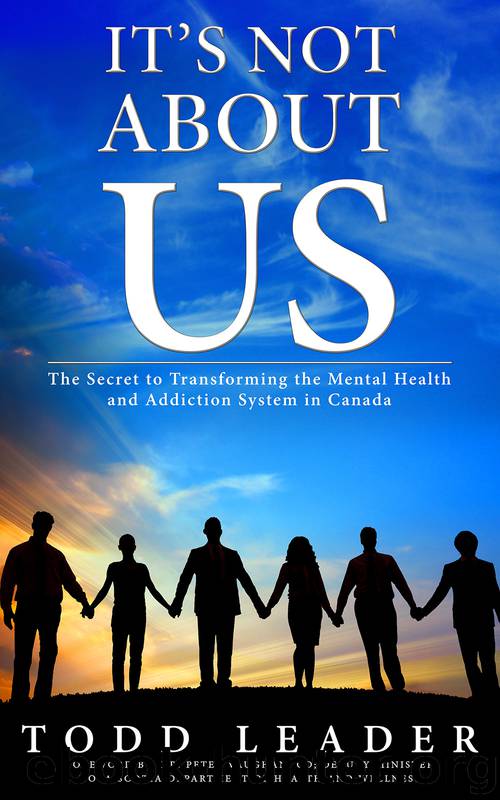It's Not About Us; The Secret to Transforming the Mental Health and Addiction System in Canada by Todd Leader

Author:Todd Leader
Language: eng
Format: epub
Published: 2017-01-24T16:00:00+00:00
Barrier – Workshops and Conferences
Every year, every month, practically every week, staff in mental health and addiction programs receive notices of presentations, webinars, workshops, and conferences. Individual staff read them, see them as interesting or useful for their own professional growth, and put in a request to management to attend. For some, this is a genuine attempt to become better at their jobs. For some, this is an opportunity to learn about something not directly related to their jobs but that is personally or professionally interesting, nonetheless. Then, there are those same small few who put in the request because it is an opportunity to get a day off work. Thankfully, that last group is tiny, but every workplace in the world has a couple of those folks.
First, it must be acknowledged that professional development has value. But, to address this situation from a client-centered perspective, we must first understand that the concept of value is on a continuum, and it is yet another relative term. Saying it is on a continuum simply means that our decision isn’t just whether or not something has value. Everything has value and falls somewhere along a line between a little and a lot.
Second, to say that the word value is a relative term again means that where something sits on the value continuum is determined by its relationship to something else. This makes it similar to the way this book has described the word priority. For purposes of this discussion, the value of something like staff educational opportunity is primarily contingent on its perceived usefulness in achieving a person’s or organization’s goals. For example, if a web-based learning opportunity came around that needed to be done outside of work hours, it would be perceived to have utility to those looking to improve their work and also to those looking to expand their own minds, but would not be perceived as useful by the person looking to get a day off. By the same logic, a mundane workshop during paid time would be useful to the work-avoidant group but not to the two categories of people who are interested in learning. Finally, a workshop about an essential, but not stimulating, work-related process would be useful to those looking to improve their job performance, and to those looking to get a day off, but not to those looking to stimulate their minds. The value of something like professional development is contingent on its perceived usefulness. That makes it also contingent on the perceiver.
Now, pretend you are a manager of a public mental health and addiction program. You have choices to make when the staff education requests start to come in. You need to decide, for each request, what its value or usefulness is. If your priority is that you want to satisfy the staff, then you will approve most or all requests, provided that the budget will allow it. This can easily be justified by saying that staff satisfaction is the priority.
If you were to
Download
This site does not store any files on its server. We only index and link to content provided by other sites. Please contact the content providers to delete copyright contents if any and email us, we'll remove relevant links or contents immediately.
Should I Stay or Should I Go? by Ramani Durvasula(7435)
Why We Sleep: Unlocking the Power of Sleep and Dreams by Matthew Walker(6362)
Fear by Osho(4496)
Flow by Mihaly Csikszentmihalyi(4493)
Rising Strong by Brene Brown(4195)
Why We Sleep by Matthew Walker(4193)
How to Change Your Mind by Michael Pollan(4115)
Too Much and Not the Mood by Durga Chew-Bose(4097)
The Hacking of the American Mind by Robert H. Lustig(4092)
Lost Connections by Johann Hari(3929)
He's Just Not That Into You by Greg Behrendt & Liz Tuccillo(3719)
Evolve Your Brain by Joe Dispenza(3506)
The Courage to Be Disliked by Ichiro Kishimi & Fumitake Koga(3264)
Crazy Is My Superpower by A.J. Mendez Brooks(3208)
What If This Were Enough? by Heather Havrilesky(3199)
Resisting Happiness by Matthew Kelly(3197)
Descartes' Error by Antonio Damasio(3167)
The Book of Human Emotions by Tiffany Watt Smith(3145)
In Cold Blood by Truman Capote(3140)
